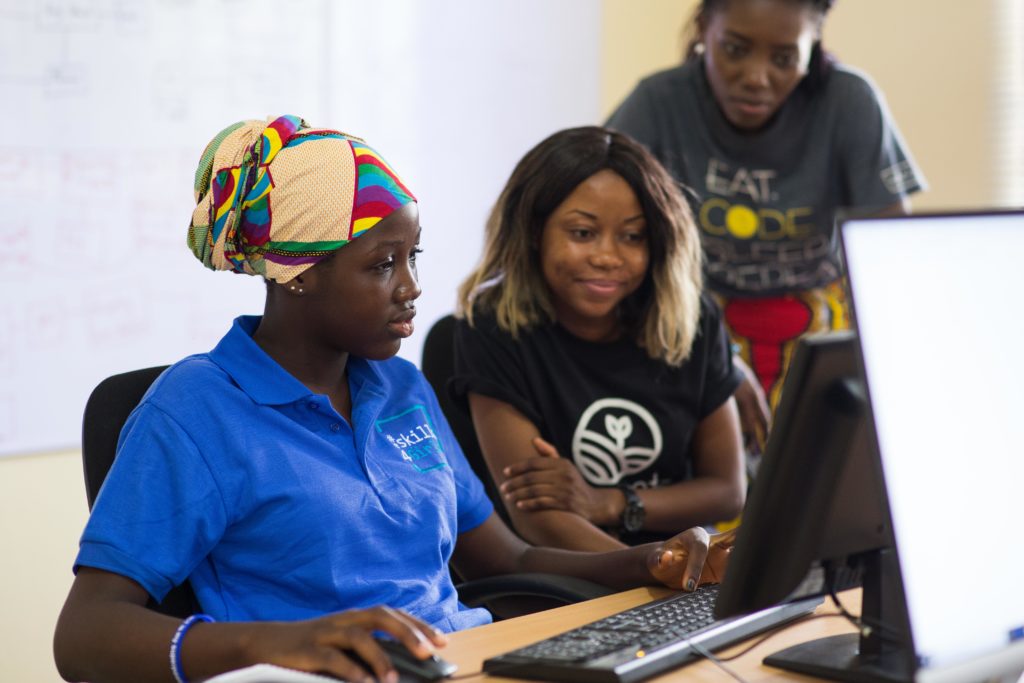
Learnings from Development Cooperation
As we find ourselves amidst the digital revolution, ICT increasingly transcend all dimensions of our lives. With more than half of the world’s population online, digital technologies profoundly transform the way we work and open immense opportunities to the way we learn. However, despite the broad possibilities that continue to emerge, many still fall short of benefitting from these developments, especially in emerging and developing countries. Lack of access to basic infrastructure as well as digital illiteracy are causing new gaps to appear and are deepening already existing divides.
Our Agenda at eLearning Africa
The German Federal Ministry for Economic Cooperation and Development (BMZ) pursues equal opportunities as a major goal stipulated in its strategy for digital technologies for development. BMZ aims at bridging existing digital divides by providing the necessary skills and embracing ICT as powerful means to improve educational programmes. In keeping with these overarching objectives, BMZ will again, show engagement at this year’s eLearning Africa conference in Abidjan. Together with the Deutsche Gesellschaft für Internationale Zusammenarbeit (GIZ) GmbH, BMZ is organizing various activities examining some of the most pressing issues as well as exploring innovative approaches to address them.
Bridging Gaps
Women remain severely affected by digital inequalities. To foster equal participation of women and girls in the digital age, the G20 initiative #eSkills4Girls was launched under German leadership in 2017. Together with GIZ colleagues from Cameroon and Mozambique as well as tech leader Nnenna Nwakanma from the Web Foundation, BMZ will host an #eSkills4Girls pre-conference workshop on 23 October. Based on a country-specific problem the workshop’s interactive design will allow participants to develop ideas towards strengthening digital skill building for girls and women and to discuss possible project implementation concepts.
Overcoming Challenges, Finding Solutions
Technical and Vocational Education and Training (TVET) institutions are realizing that digital solutions such as e-learning will allow them to increase scope and quality of their services and thereby meet the high demand they are experiencing. However, despite the manifold opportunities, there are significant challenges that hamper setup, implementation and continuous use of digital technologies in development cooperation. During the session The Relevance of Technical and Vocational Education (TVET) on 24 October, Ndakolute Stephanus Abraham (GIZ Namibia) will examine these challenges and explore how to successfully set up and run an e-learning platform fit for TVET purposes.
Empowering Teachers
With the increasing call for ICT in education, schools in emerging and developing countries can greatly benefit from digitally versed teaching staff. At the same time large barriers remain, not least the lack of infrastructure. Dr. Christian Hoffmann (GIZ Guinea) will analyze challenges and opportunities within the session Digital Literacy for Teachers and Trainers on 25 October. Based on his experiences gained in Guinea, he will examine how primary teachers can be provided with the required resources and digital skills to successfully apply digital technologies in education.
Applying Innovation
One of the most recent buzzwords in digital solutions for education is Gamification. But what does this new trend entail? In his session Game on! How to use Gamification in International Cooperation on 24 October, Dr. Philipp Busch (GIZ Germany) will not only give a general introduction to the subject matter, but also evaluate its benefits to education. In order to understand how innovative approaches such as this one may be useful for development cooperation, he will present and analyze the learnings from two GIZ projects in Yemen and Egypt.
eLearning Africa 2019 Under the Patronage of German Federal Minister Dr Gerd Müller
The promotion of digital literacy and ICT for education is a priority area of German development policy in the digital age. BMZ and its Federal Minister Dr Gerd Müller are delighted to support this years’ conference. For more information on BMZ’s digital strategies, see http://www.bmz.de/ict.


















